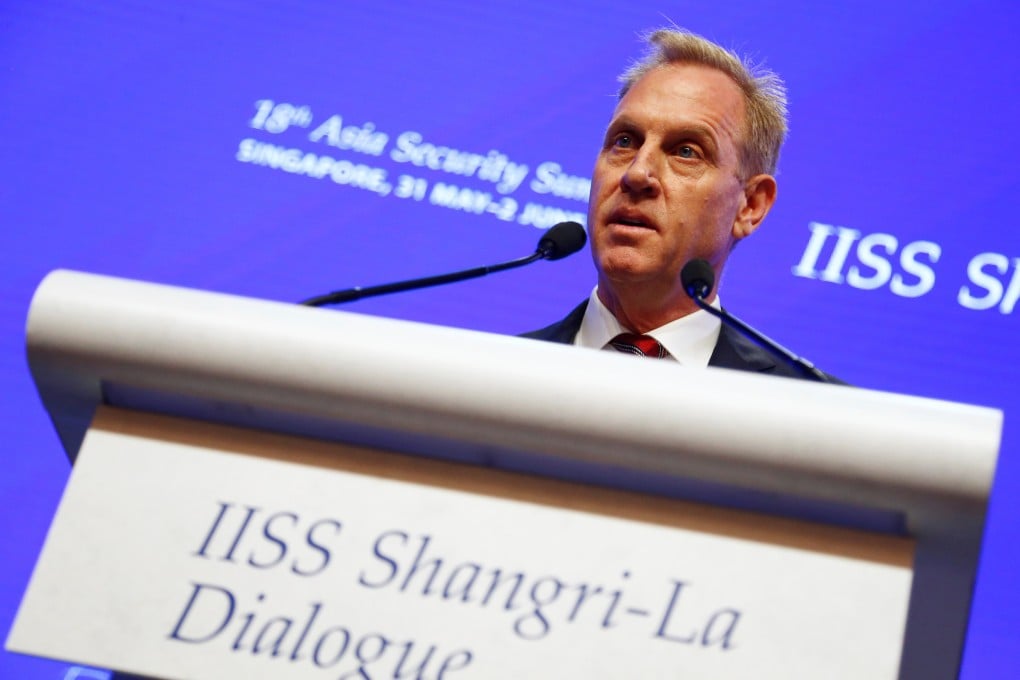Erosion of nations’ sovereignty must end, US defence chief Patrick Shanahan tells Asia forum
- Having the capability to win wars the best way to deter aggressive behaviour in Indo-Pacific, official says at Shangri-La Dialogue
- Shanahan appeals to Asian countries to invest in themselves to increase ‘ability to exercise sovereign choices’

The United States does not seek conflict but coercive behaviour like China’s that erodes other nations’ sovereignty must end, acting secretary of defence Patrick Shanahan told an Asia security summit in Singapore on Saturday.
Speaking at the annual Shangri-La Dialogue, organised by the International Institute for Strategic Studies, Shanahan criticised China for breaching the US-led world order and urged Beijing to cooperate with Washington.
“[Some] actors undermine the system by using indirect, incremental actions and rhetorical devices to exploit others economically and diplomatically, and coerce them militarily. They destabilise the region, seeking to reorder its vibrant and diverse communities toward their exclusive advantage,” he said.
“Behaviour that erodes other nations’ sovereignty and sows distrust of China’s intentions must end … the US does not seek conflict, but we know that having the capability to win wars is the best way to deter them.”

The defence official also warned of “actors” engaging in “predatory economics and debt for sovereignty deals, lubricated by corruption, which take advantage of pressing economic needs to structure unequal bargains that disproportionately benefit one party”.